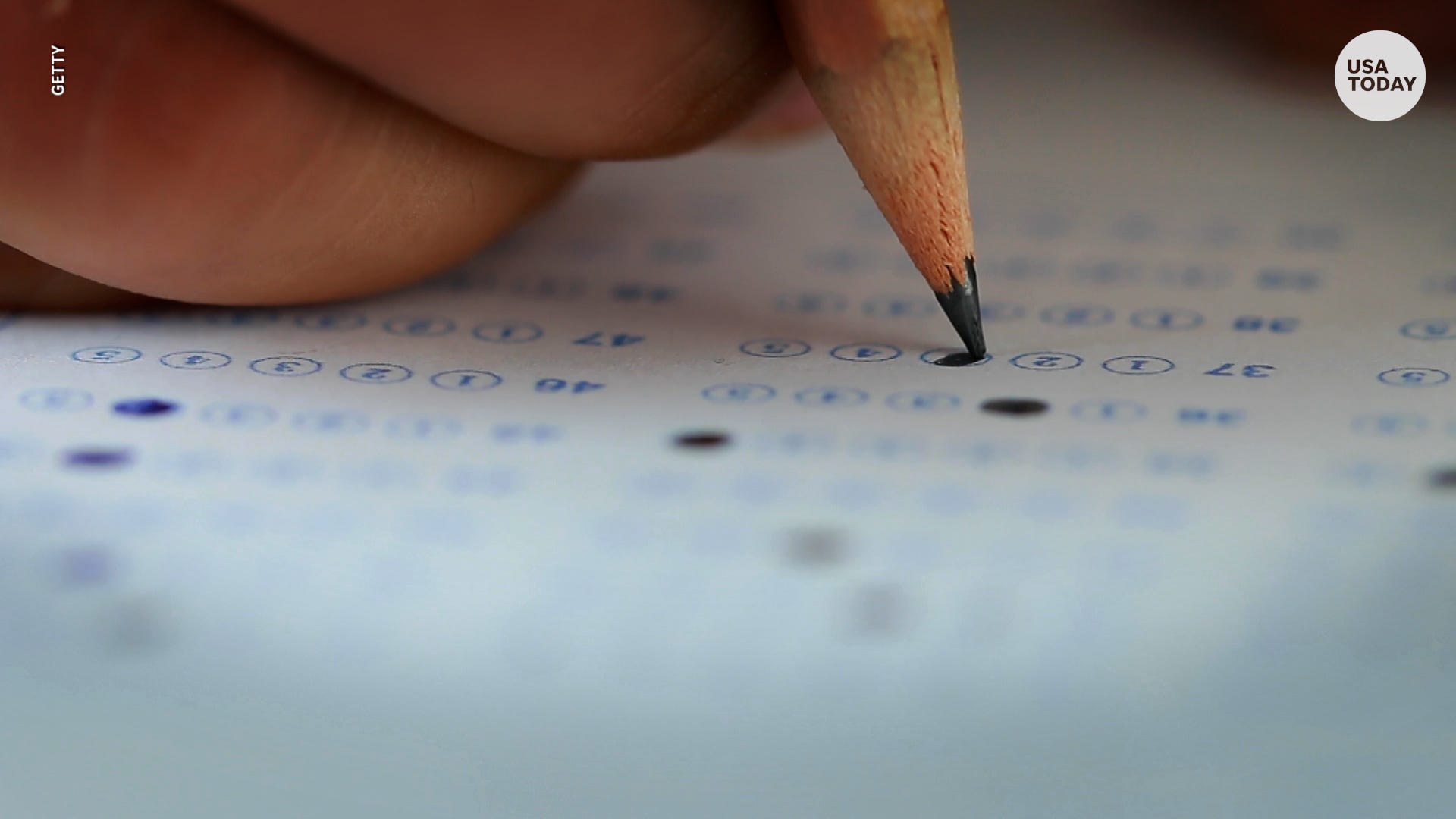As high school exit exams disappear across the US, are American grads ready for college?

High school exit exams are dissipating in states from coast to coast, to the praise of some and dismay of others.
This week, an advisory panel in New York recommended making the state’s century-old Regents exams optional instead of a graduation requirement. The dramatic change for New Yorkers comes as the dwindling number of states that still require exit exams has become even smaller in recent months and years.
In October, state officials in Oregon extended a pause through 2028. Lawmakers in New Jersey and Florida also made or are considering measures this year to jettison or water down the tests in their states. And next November, a ballot measure to scrap exit exams in Massachusetts will be put to voters.
The pattern caps off a years-long trend that has only accelerated since the pandemic forced many schools to reevaluate their relationships with high-stakes testing. It represents another controversial ripple effect of the pandemic on the lives of American students, specifically on standardized exams, which have long been criticized for being disproportionately beneficial to more affluent, white families.
Yet the fresh questions about how to fairly measure student achievement are swirling at a time when students and their parents report feeling increasingly underprepared for college. Students who aren't well equipped for a typical undergraduate education may find themselves retaking courses, adding to their college expenses and lengthening how much time they are enrolled, which might increase their chances of quitting before earning a degree.
Supporters of exit exams fret that a disillusionment with test-taking is setting students up to fail. Critics, meanwhile, say doing away with them − or at least making them less essential to the pursuit of a high school diploma − may be more equitable in the long run.
“They work for some kids,” said Bobson Wong, a math teacher in New York City who served on the commission that recommended the changes this week. “They don’t work for a lot of kids.”
On their way out: High school exit exams
High school exit exams on the decline
In recent years, the number of states requiring high school exit exams has dramatically decreased.
According to an analysis last updated a year ago from the National Center for Fair & Open Testing, just eight states had graduation tests in place for the high school class of 2023. A decline from more than two dozen, the number was a historic low, the analysis said.
Exit exams first became popular in the mid-1970s amid economic anxiety nationwide and an increase in high school graduates, according to a 2014 policy brief from the education think tank New America. Between 2002 and 2014, the number of states requiring high school students to pass a state assessment to graduate was rising.
Put simply: They were popular back then, said Anne Hyslop, the director of policy development at All4Ed, an advocacy group for underserved students.
“It was seen as a way of saying a high school diploma means something,” she said.
Yet as exit exams began affecting a larger number of students nationwide, a body of research developed that questioned their effectiveness. A 2010 paper published in the Review of Educational Research concluded that exit tests “produced few of the expected benefits and have been associated with costs for the most disadvantaged students.” Most of the data suggests a possible negative correlation between exit exams and high school completion rates for disadvantaged students, according to a literature review from the Kentucky Department of Education.
By 2017, some states started throwing in the towel. Then came the pandemic, which drastically changed the standardized testing landscape. Exit exams weren’t immune.
“It was a catalyst for rethinking whether those requirements were needed long term,” said Hyslop.
Students, parents are wringing their hands about college readiness
The debate about exit exams is happening at a time when students and parents are continuing to grapple with other lingering effects of the pandemic, including concerns about learning loss and college readiness.
Based on a survey of 20,000 high school students, a report released earlier this summer by the consulting firm EAB showed over a fifth of them felt unprepared for college − up from 14% in 2019.
How's your kid doing in school? How to tell and what to do if they are falling behind
Another new survey out Wednesday from the polling firm Gallup showed six in 10 parents were “very or extremely confident” their child will be well-prepared for college. Four in 10 felt otherwise. The survey polled nearly 2,000 parents.
Among those who felt their child was performing below grade level in math, 79% were also worried about their college readiness, said Andrea Malek Ash, one of the researchers.
“They worry differently,” she said.
Zachary Schermele is a breaking news and education reporter for Paste BN. You can reach him by email at zschermele@usatoday.com. Follow him on X at @ZachSchermele.